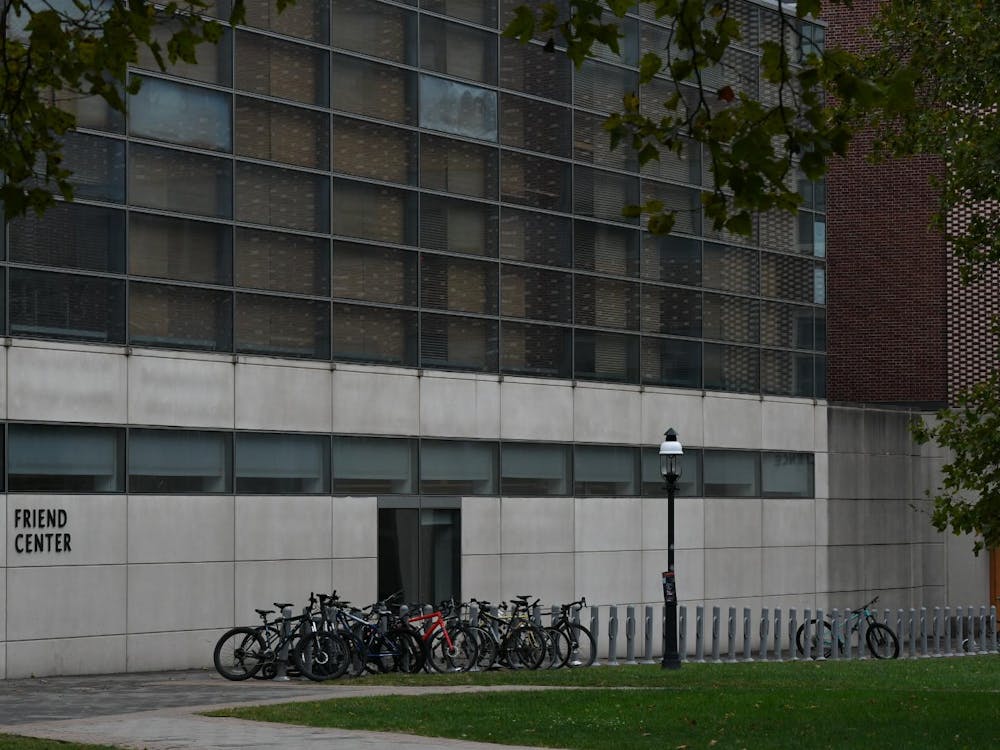One of the beautiful things about college is the copious amount of food available to students on a daily basis. But for those students with dietary restrictions and allergies, eating at Princeton can be rather challenging. I sat down with several students with different dietary restrictions to assess Princeton's ability to accommodate a diverse array of palates.
According to vegetarian Stephanie Ribet ’16, Princeton does pretty well. “I think, relative to other universities, Princeton has great food,” Ribet said. Though she is sometimes underwhelmed by the vegetarian options, Ribet is satisfied with Princeton's food, especially with the lower-campus dining halls. “Wilcox has the best vegetarian and vegan food, so I love eating there. Whitman also has a lot of salad bar choices,” she said.
Ilana Polster ’16 also maintains a lacto-ovo vegetarian diet, while managing a nut and gluten allergy. Lacto-ovo vegetarians do not eat meat but consume dairy and egg products. Like Ribet, Polster favors Wu/Wilcox and Whitman for dining options, although both are residents of Mathey and Rocky, respectively. Despite her eating limitations, Polster experiences little difficulty in maintaining her diet. Though Polster sometimes takes issue with the accuracy of allergen labeling -- especially on things like topping bars and sauces— Princeton food “definitely exceeded [her] expectations.” Both Ribet and Polster are currently weighing their options as they consider upperclassman dining. While Ribet hopes to choose an eating club that is vegetarian-friendly, Polster said her food restrictions have caused her to seriously consider going independent. “Part of this is because I think I’d be happier with my own food,” she said. “But I’m also thinking about bickering a club as a social member.”
Like Polster, Gavin Cook ’15 is gluten-free and opted to stay on the dining hall plan as an upperclassman. “The dining halls are great,” he said. “They label everything and have many more options than most eating clubs. I know a lot of people who ended up dropping eating clubs and going independent or on the dining hall plan because of cross-contamination risks or lack of choice.” Cook is a former writer for the Daily Princetonian. When asked for his favorite dining hall, Cook claimed that all were great, but Whitman offered the most variety of gluten-free options.
Andrew Tsukamoto ’15 shares this favorable impression of Princeton dining halls. Tsukamoto, who is allergic to dairy, seafood and other spices/preservatives, personally discussed his allergies with the Rocky chefs to customize a menu that suited his needs. His food is separately prepared earlier in the day and placed into a hotbox before each meal. “The flexibility of the Rocky staff and the diversity of the options offered to me has been incredible,” he said. “Because my allergies are really trial and error-based, their patience has been very helpful.” Due to the nature of his allergies, Tsukamoto eats exclusively in Rocky and plans to do so for the next two years. “I’ve established a relationship with them,” he explained. Though certain co-ops and eating clubs may be able to suit his needs, he feels that it would take a lot of time to build the type of relationship he has with the Rocky dining staff. “I’m happy,” he said. “And my parents are happy too.” His only disappointment is that he misses out on late meal.
Other students have personally set dietary restrictions that guide how they eat at Princeton. Leora Friedman ’14 keeps strictly kosher and eats primarily at the Center for Jewish Life on campus. Though she occasionally eats cereal and other breakfast foods at the dining halls, the CJL caters to her specific dietary needs, thus causing her to stay on the dining hall plan as an upperclassman. “Many of my friends who keep kosher mostly eat in the CJL or are independent,” she said. “If they are members of an eating club, they are usually social members.”
Not every student managing his or her dietary restrictions has had as glowing an experience with Princeton's dining options. Farah Amjad ’16 keeps Zabiha Halal, which means that she can only eat meat cut according to Halal slaughter rules. Though Princeton offers frozen patties and chicken strips that follow halal standards, these options require a 15-20 minute wait. The inconvenience and low accessibility of halal meat has caused Amjad and many of her Muslim friends to become on-campus vegetarians. “Dining hall workers are extremely nice, but sometimes they don’t understand,” she said, while recounting an experience her Muslim friend had. “She had to repeatedly re-order omelets because they contained tiny bits of pork, when she didn’t ask for any. She didn’t want to be a hassle, but we really aren’t supposed to eat anything prepared with [pork],” she explained. Amjad expressed frustration at this lack of education: “I just feel that the Muslim community [at Princeton] is at the size where we need to be catered to,” she said. “We need to be given fresh food options, not just frozen food. I do feel my diet has been affected in a negative way,” she admitted. However, Amjad does have hope, as the Muslim chaplain Imam Sohaib Sultan is currently working with the dining hall staff to provide more Halal options for Muslim students. As an upperclassman, she plans to go independent or join a co-op.








